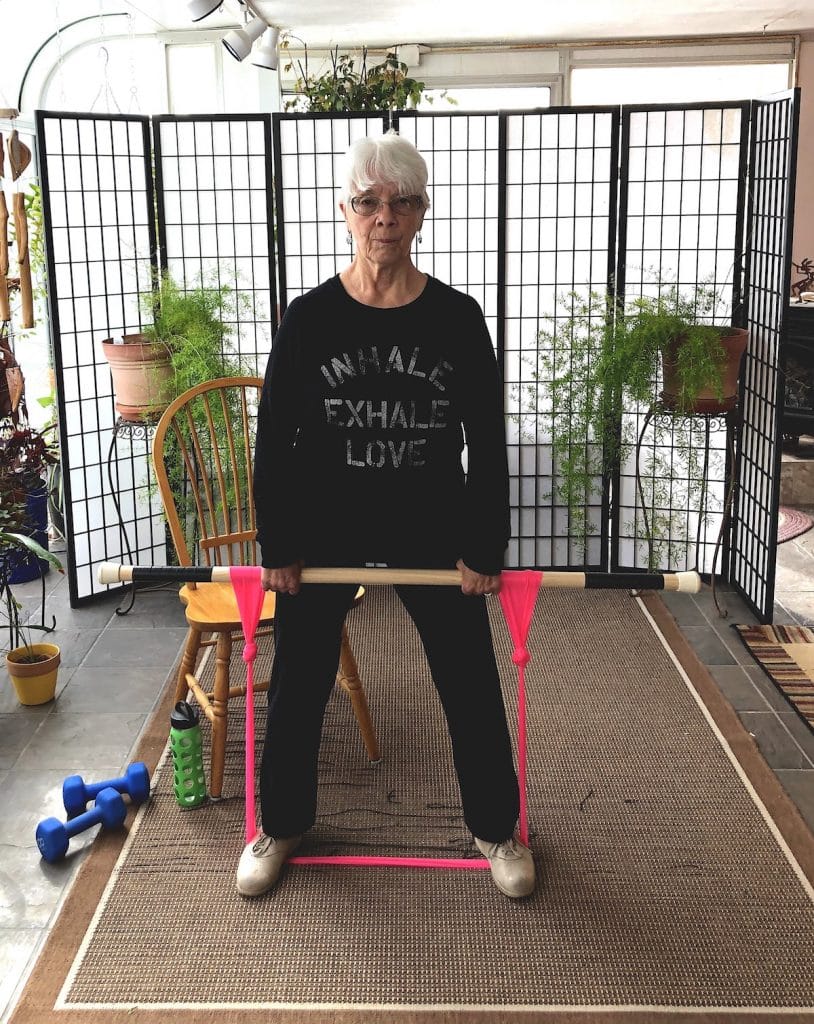
Aurilla W. has always been outdoorsy, active and strong. So, when she was diagnosed with osteoporosis a few years ago, she didn’t hesitate to start regular resistance training in a fitness studio to improve her bones and muscles.
And with the coronavirus recently closing that studio to in-person exercise, Aurilla, now 71, wasn’t about to let that stop her, either.
“It’s just a matter of getting down and doing it,” she says. “It’s fun – and I have worked hard.”
Aurilla is like millions of people around the world over age 50 who have begun online training recently. They’re not sacrificing their strength, stamina and balance because of coronavirus quarantines or their own reluctance about using technology.
Fitness studios, gyms and trainers are doing everything possible to keep their clients safe, active, in shape, and connected. Here in Minneapolis, I’ve continued training most of my in-home clients virtually using FaceTime or Google Duo. It’s simple and easy enough that even my 93-year-old client is doing it without difficulty.
Bone Density Can Improve With Online Personal Training
Osteopenia and osteoporosis affect 200 million women worldwide, including about a tenth of women over 60, with that percentage increasing with age. It affects some 75 million people in Europe the US and Japan. Men get it, too – with 20 percent of men over 50 experiencing osteoporotic fractures.
Strength training is a mainstay of protecting and improving bones.
Most of our bone-building sessions focus on strength, balance and the psychological benefits of exercise, including the social aspect that’s so valuable during the Covid-19 crisis. We use body weight exercises, resistance bands, small balls, ankle weights and other common items.
Online training is more cautious than in-person sessions but effective. It’s especially important for people with osteoporosis to stay strong so they remain confident and able to resist falling.
Before the “Stay at Home” order began, I had a few practice sessions on FaceTime or Google Duo to help everyone get familiar with the online video platform. It lets me see my clients and provide individual coaching. And just as important, it lets them see me as well, which helps if I need to demonstrate something. As Jean M. says, “I wouldn’t want to give it up now. I still want somebody watching me.”
Aurilla agrees. She got over her dislike for technology a few years ago when her granddaughter was born. Seeing the baby was more important.
Now, so are staying healthy and socially connected, too.
If you’d like to learn more about how virtual personal training can help you, complete the form below to request a free consultation 🙂
